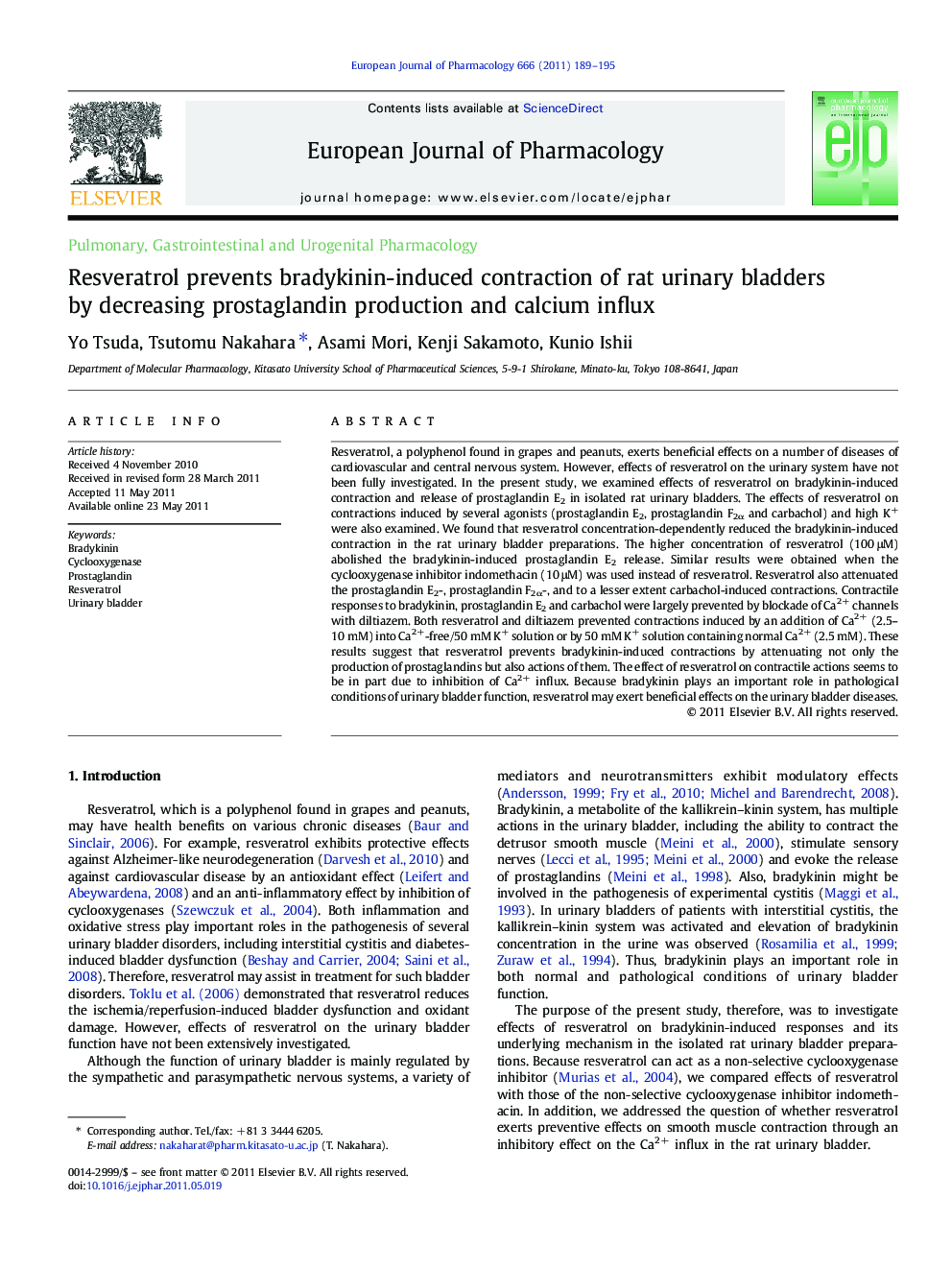| Article ID | Journal | Published Year | Pages | File Type |
|---|---|---|---|---|
| 2532642 | European Journal of Pharmacology | 2011 | 7 Pages |
Resveratrol, a polyphenol found in grapes and peanuts, exerts beneficial effects on a number of diseases of cardiovascular and central nervous system. However, effects of resveratrol on the urinary system have not been fully investigated. In the present study, we examined effects of resveratrol on bradykinin-induced contraction and release of prostaglandin E2 in isolated rat urinary bladders. The effects of resveratrol on contractions induced by several agonists (prostaglandin E2, prostaglandin F2α and carbachol) and high K+ were also examined. We found that resveratrol concentration-dependently reduced the bradykinin-induced contraction in the rat urinary bladder preparations. The higher concentration of resveratrol (100 μM) abolished the bradykinin-induced prostaglandin E2 release. Similar results were obtained when the cyclooxygenase inhibitor indomethacin (10 μM) was used instead of resveratrol. Resveratrol also attenuated the prostaglandin E2-, prostaglandin F2α-, and to a lesser extent carbachol-induced contractions. Contractile responses to bradykinin, prostaglandin E2 and carbachol were largely prevented by blockade of Ca2+ channels with diltiazem. Both resveratrol and diltiazem prevented contractions induced by an addition of Ca2+ (2.5–10 mM) into Ca2+-free/50 mM K+ solution or by 50 mM K+ solution containing normal Ca2+ (2.5 mM). These results suggest that resveratrol prevents bradykinin-induced contractions by attenuating not only the production of prostaglandins but also actions of them. The effect of resveratrol on contractile actions seems to be in part due to inhibition of Ca2+ influx. Because bradykinin plays an important role in pathological conditions of urinary bladder function, resveratrol may exert beneficial effects on the urinary bladder diseases.
